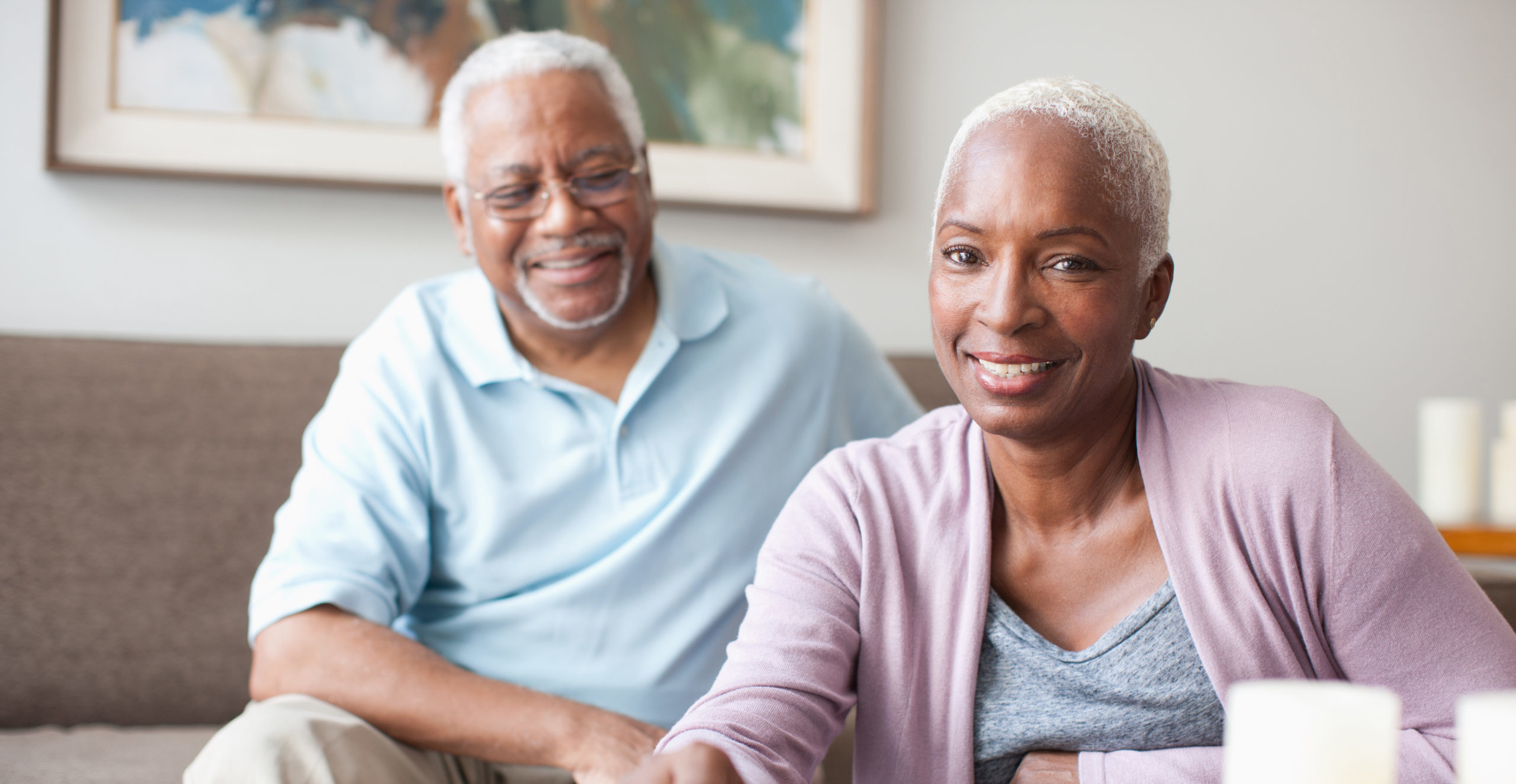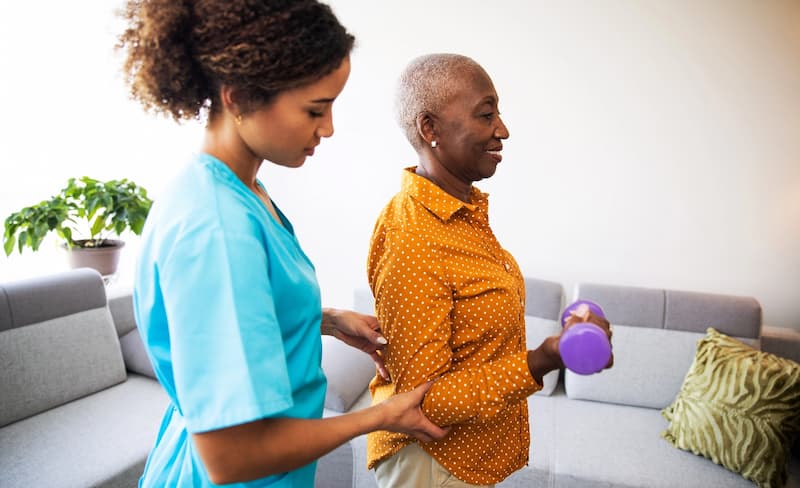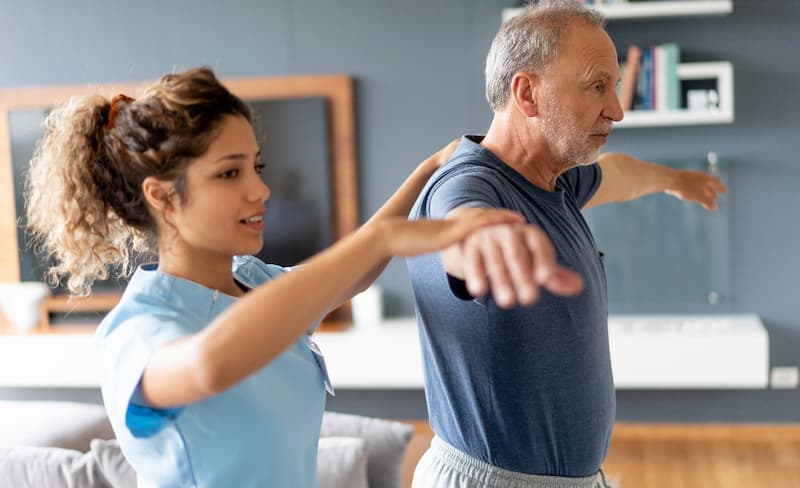

Stroke
Our Personalized Stroke Rehab Program Addresses Physical, Cognitive, and Emotional Recovery
A stroke – also known as a cerebrovascular accident, or “CVA” – can affect many parts of the body such as movement, speech, and memory. As a result, the road to recovery can be long and complex.
Fortunately, the outlook for stroke survivors today is more hopeful than ever. While rehabilitation doesn’t reverse the damage caused by a stroke, it can help a survivor achieve the highest level of independence and quality of life possible.
Our Approach to Post-Stroke Rehabilitation
The Rehab Without Walls® approach to stroke rehab centers on a few main principles:
Many specialties, one team
A stroke can affect many parts of the body and mind, so we think it’s important for multiple specialties to work together.
A team approach is often more efficient, too. For example, an occupational therapist (OT) and physical therapist (PT) might go for a walk with the individual together. The OT will focus on pathfinding and comprehension, while the PT will focus on gait and balance.
Family member education and involvement
Stroke has a ripple effect on the survivor’s family, possibly causing the family dynamic to change. There may be worries if the main breadwinner is unable to work. Expectations for recovery may not be in line with reality.
That’s why we help both the individual and family develop coping strategies to adjust to their new reality. The health of the family and the health of the client are so interconnected that both need to be a part of the treatment process.
Long-term, real-world goals
In addition to typical “functional goals” of post-stroke therapy, like being able to walk unassisted, we work with the individual and their family to establish goals that are more individualized.
Because a stroke can occur in people of all ages (not just the elderly, as the stereotype would have you believe), this approach is particularly beneficial for younger individuals who want to participate as fully as possible in home and work life.
While it’s important to measure progress during therapy, our real success lies in what comes after. That’s why we say we’re focused on “durable outcomes.”
Care Settings
We offer our evidence-based approach to adult and children in a variety of care settings,
providing the opportunity to heal in the environment that’s best for them.

Home and Community (Adults and Children)
With this approach, therapy takes place in the home, at the workplace, in school or elsewhere in the individual’s community.
Learn MoreOutpatient Neuro Rehab (Adults and Children)
In select locations, we offer both individual and group sessions in fully equipped rehabilitation centers.
Learn More
Residential Neuro Rehab (Adults)
Following a stroke, individuals are often discharged from the hospital once they are medically stable – but that doesn’t necessarily mean they’re ready or able to go home right away. Residential rehab helps smooth the transition from hospital to home.
Learn More

